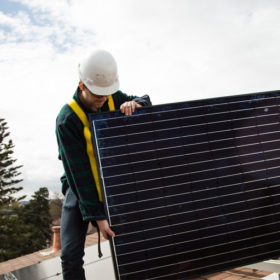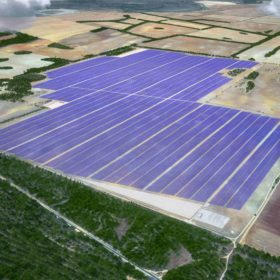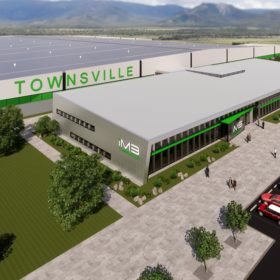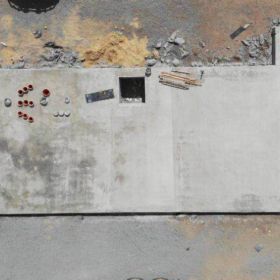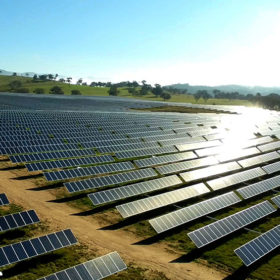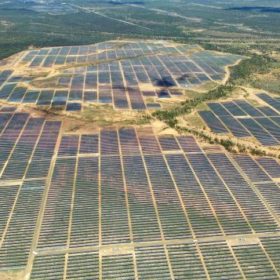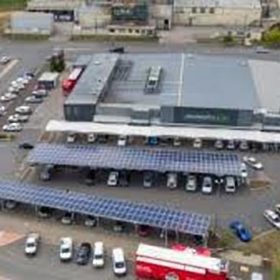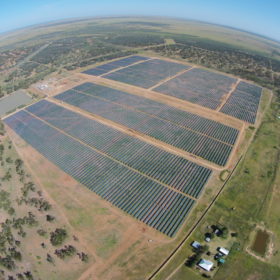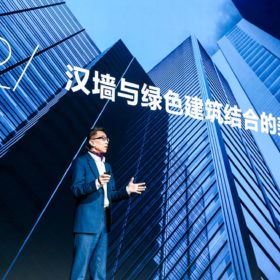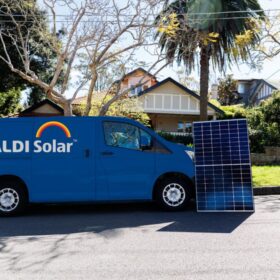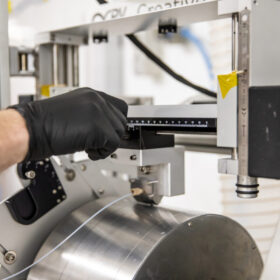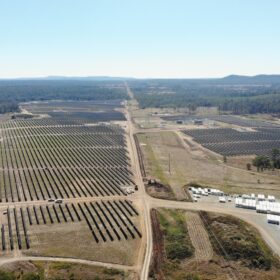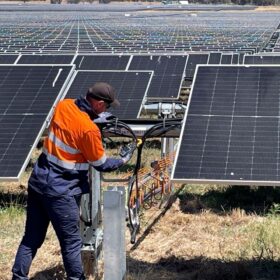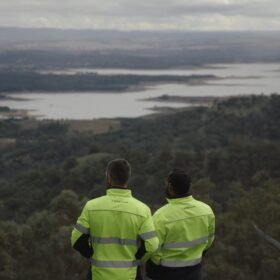Renewable energy jobs surge thanks to solar PV
Rooftop solar remained the biggest employer in the Australian renewable energy sector last financial year, but it was large-scale solar PV that stole the limelight as it emerged as the second largest contributor of direct full-time jobs.
Australia and India helped make up for Chinese solar retreat last year
The world had more than half a terawatt of PV generation capacity at the end of last year as emerging solar markets picked up the slack caused by Beijing’s subsidy about-turn to the tune of a 20% rise in installations outside China.
Getting (almost) all our energy from the sun by 2050
Solar could meet approximately 68% of global energy demand with other renewables making up the rest, according to a new report. A 100% renewable energy system could also create 22 million solar jobs by 2050, the study claims. Keeping global warming below 1.5 degrees C, though, would require FITs for projects up to 40 MW in capacity, auctions for bigger systems, removing fossil fuel and nuclear subsidies and providing more education and R&D and less red tape.
Major progress on Townsville battery “gigafactory” study
Significant progress has been reported on the feasibility study which aims to progress the establishment of a 15 GWh lithium-ion battery factory in Townsville. The study is conducted by the Imperium3 Townsville consortium.
UNSW is developing Australia’s first large-scale hybrid storage system
The University of New South Wales (UNSW), the birthplace of pioneering PV technologies, is now developing another innovative solution: a large-scale hybrid energy storage that will combine lithium-ion batteries and hydrogen fuel cells. The first system will be installed at Risen Energy’s 121 MW Yarranlea Solar Farm in Queensland.
Five-minute forecast a win for solar energy industry
Australian researchers are developing short-term weather forecasts for solar farms to help them precisely predict output as little as five minutes in advance.
FRV commissions 100 MW in Queensland, vows to build 5.8 GW globally by 2024
Spanish developer Fotowatio Renewable Ventures (FRV) has announced that its latest operational project in Australia, the 100 MW Lilyvale solar plant, is now up and running. FRV’s parent says it is strategically investing US$900 million throughout the world in 2019 to increase its installed capacity to 5.8 GW by 2024.
Woolworths becomes world’s first retailer to issue green bonds
The Australian supermarket giant is issuing green bonds to fund the development of low-carbon supermarkets and the installation of solar at its stores and distribution centres.
CEC warns jobs, projects at risk as Queensland introduces new solar rules
The Queensland government has laid down regulations for solar farms that will allow only licensed electricians to install or remove PV panels. But the new rules will put hundreds of local jobs at risk and could bring some projects to a standstill, the Clean Energy Council (CEC) has warned.
Tesla, GAF, RGS and now Hanergy: will solar roofs finally heat up this year?
Hanergy displayed the newest rendition of its 18.7% Thin Film Flat SOLARtile in Australia last week as it gears up for the U.S. and global product launch later in 2019.
